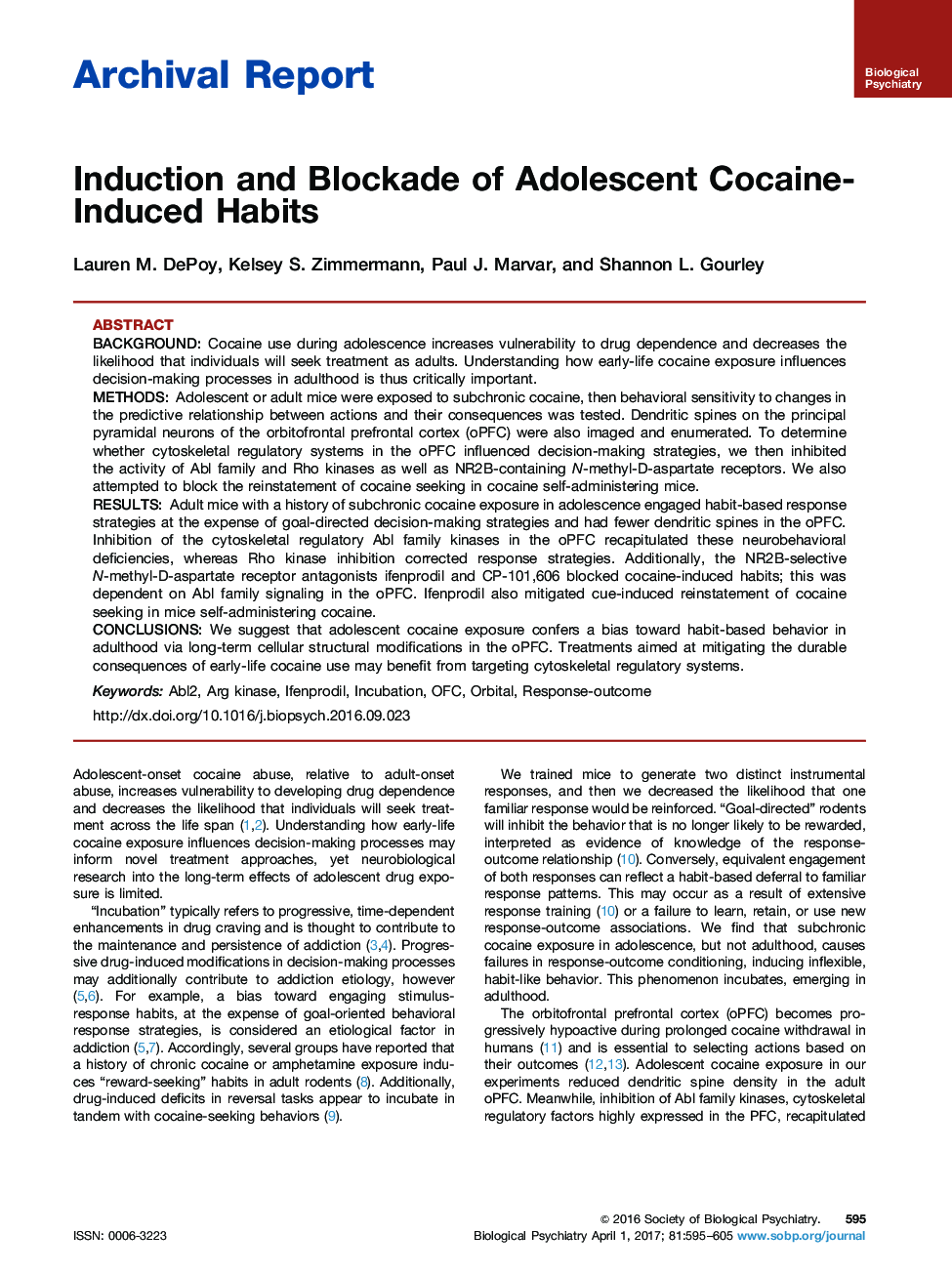| کد مقاله | کد نشریه | سال انتشار | مقاله انگلیسی | نسخه تمام متن |
|---|---|---|---|---|
| 5720568 | 1411318 | 2017 | 11 صفحه PDF | دانلود رایگان |
BackgroundCocaine use during adolescence increases vulnerability to drug dependence and decreases the likelihood that individuals will seek treatment as adults. Understanding how early-life cocaine exposure influences decision-making processes in adulthood is thus critically important.MethodsAdolescent or adult mice were exposed to subchronic cocaine, then behavioral sensitivity to changes in the predictive relationship between actions and their consequences was tested. Dendritic spines on the principal pyramidal neurons of the orbitofrontal prefrontal cortex (oPFC) were also imaged and enumerated. To determine whether cytoskeletal regulatory systems in the oPFC influenced decision-making strategies, we then inhibited the activity of Abl family and Rho kinases as well as NR2B-containing N-methyl-D-aspartate receptors. We also attempted to block the reinstatement of cocaine seeking in cocaine self-administering mice.ResultsAdult mice with a history of subchronic cocaine exposure in adolescence engaged habit-based response strategies at the expense of goal-directed decision-making strategies and had fewer dendritic spines in the oPFC. Inhibition of the cytoskeletal regulatory Abl family kinases in the oPFC recapitulated these neurobehavioral deficiencies, whereas Rho kinase inhibition corrected response strategies. Additionally, the NR2B-selective N-methyl-D-aspartate receptor antagonists ifenprodil and CP-101,606 blocked cocaine-induced habits; this was dependent on Abl family signaling in the oPFC. Ifenprodil also mitigated cue-induced reinstatement of cocaine seeking in mice self-administering cocaine.ConclusionsWe suggest that adolescent cocaine exposure confers a bias toward habit-based behavior in adulthood via long-term cellular structural modifications in the oPFC. Treatments aimed at mitigating the durable consequences of early-life cocaine use may benefit from targeting cytoskeletal regulatory systems.
Journal: Biological Psychiatry - Volume 81, Issue 7, 1 April 2017, Pages 595-605
